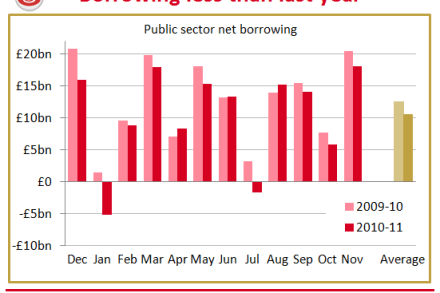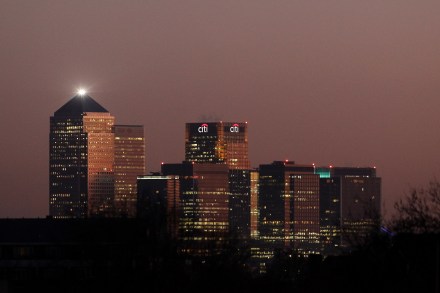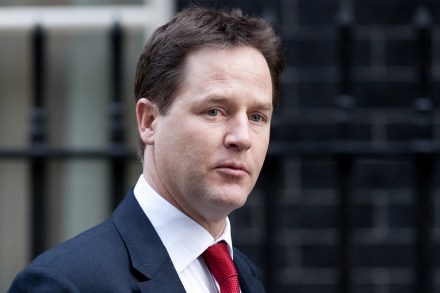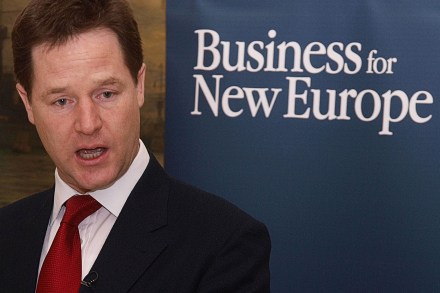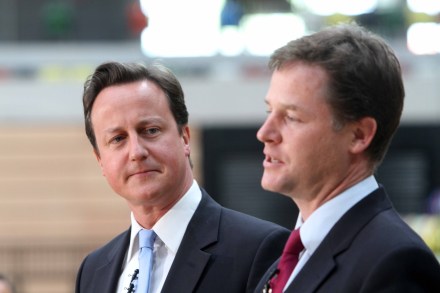Clegg tries to reassure his troops
Only a few weeks ago, a statement from Nick Clegg in firm support of the coalition wouldn’t have been noteworthy at all. It’s just what he, as Deputy Prime Minister, did. But now, after his very public palpitations over Europe, the New Year’s message that Clegg has broadcast today is a little more eyecatching than it would otherwise have been. This is no provcation to rile the Tories, but a more or less sober assessment of what the Lib Dems have achieved in government, along with a few lines about how fixing the economy ‘remains the number one priority for our party and the coalition.’ Most strikingly of all, Clegg




